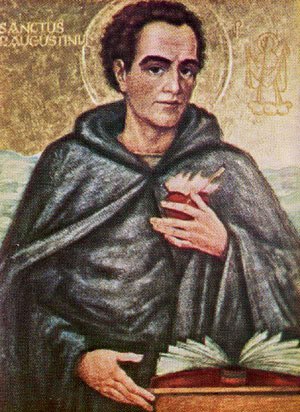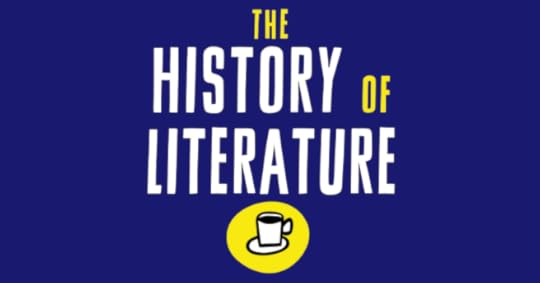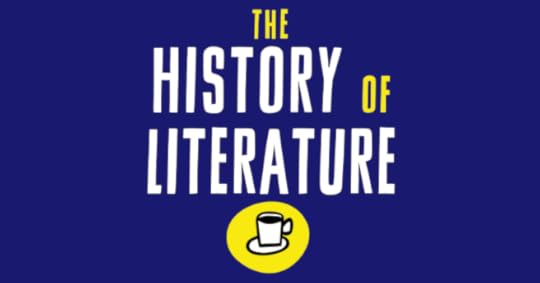Jacke Wilson's Blog, page 49
June 19, 2016
The History of Literature #47 – Hemingway vs Fitzgerald
Ernest Hemingway (1899-1961) and F. Scott Fitzgerald (1896-1940) were the pole stars of the Lost Generation, the collection of young American authors who came of age in the Paris and New York of the 1920s. The Hemingway-Fitzgerald relationship has been examined for decades and continues to fascinate. Why are we so drawn to these two authors? What do they represent in American literature? Who was the better author, and why?
Jacke and Mike take a look at the great Hemingway-Fitzgerald debate – and challenge themselves to find ten new things to say about these American icons.

Podcast: Play in new window | Download (Duration: 46:50 — 32.4MB)
Subscribe: iTunes | Android | RSS | More Subscribe Options
Show Notes:
You can find more literary discussion at jackewilson.com and more episodes of the series at historyofliterature.com.
Contact the host at jackewilsonauthor@gmail.com or by leaving a voicemail at 1-361-4WILSON (1-361-494-5766).
Music Credits:
“Handel – Entrance to the Queen of Sheba” by Advent Chamber Orchestra (From the Free Music Archive / CC by SA).


June 12, 2016
The History of Literature #46: The Poetry of the T’ang Dynasty
China’s T’ang Dynasty (618-907 A.D.) valued poets and poetry like no other culture before or since. In this episode, Jacke Wilson takes a look at what may have been the greatest flourishing of poetry in the history of the world. Poets discussed include Ezra Pound (1885-1972), T’ao Ch’ien (365-427), Wang Wei (ca. 699-761), Li Bai (Li Po) (701-762), and Tu Fu (712-770).

Podcast: Play in new window | Download (Duration: 1:11:11 — 49.2MB)
Subscribe: iTunes | Android | RSS | More Subscribe Options
Show Notes:
You can find more literary discussion at jackewilson.com and more episodes of the series at historyofliterature.com.
Contact the host at jackewilsonauthor@gmail.com or by leaving a voicemail at 1-361-4WILSON (1-361-494-5766).
Music Credits:
“Handel – Entrance to the Queen of Sheba” by Advent Chamber Orchestra (From the Free Music Archive / CC by SA).
“Tea Roots” by Kevin MacLeod (incompetech.com)
Licensed under Creative Commons: By Attribution 3.0


June 5, 2016
The History of Literature #45 – Augustine and The Confessions (pt 2)
Continuing the journey with a deeper look at the incredible achievements of St. Augustine (354 – 430 A.D.), a luminary of the early Catholic church, one of the most profound thinkers in Western culture, and the author of a work the likes of which the world had never seen, The Confessions. Host Jacke Wilson identifies five key themes in The Confessions and shows how the themes build up to the autobiography’s culminating passage.
Podcast: Play in new window | Download (Duration: 59:18 — 41.0MB)
Subscribe: iTunes | Android | RSS | More Subscribe Options
Works Discussed:
The Confessions of St. Augustine (tr. Maria Boulding)
Show Notes:
You can find more literary discussion at jackewilson.com and more episodes of the series at historyofliterature.com.
Contact the host at jackewilsonauthor@gmail.com or by leaving a voicemail at 1-361-4WILSON (1-361-494-5766).
Music Credits:
“Handel – Entrance to the Queen of Sheba” by Advent Chamber Orchestra (From the Free Music Archive / CC by SA).
“Virtutes Vocis” and “Virtutes Instrumenti” by Kevin MacLeod (incompetech.com)
Licensed under Creative Commons: By Attribution 3.0


May 31, 2016
St. Augustine in Translation
We’re getting a lot of great feedback on our latest History of Literature episode, #44 – The Confessions of St. Augustine. One of the great things about Augustine is how readable it is: even though the arguments are deep, the prose is never dense, especially in a very good translation.
Several of you have asked which translation I would recommend. I’m not an expert, but I’m happy to offer my thoughts. I’ve previously relied on the Penguin editions, and those are usually pretty safe bets. This time I looked at several before deciding on the one I did, which is by Maria Boulding.
[image error](Clicking the image will take you to the Amazon page.)
Translations can be excellent in different ways. Boulding’s is fresh without being anachronistic, readable without losing the Latinate rhythms and flavor. I think it does Augustine justice. I read a few passages yesterday on the podcast, but for those of you who want to examine it on the page, here’s an excerpt to see what you think:
Great are you, O Lord, and exceedingly worthy of praise; your power is immense, and your wisdom beyond reckoning. And so we humans, who are a due part of your creation, long to praise you—we who carry our mortality about with us, carry the evidence of our sin and with it the proof that you thwart the proud. Yet these humans, due part of your creation as they are, still do long to praise you. You stir us so that praising you may bring us joy, because you have made us and drawn us to yourself, and our heart is unquiet until it rests in you.
Good, right? And here’s a simpler one, leading up to the famous “pear-tree incident”:
Beyond question, theft is punished by your law, O Lord, and by the law written in human hearts, which not even sin itself can erase; for does any thief tolerate being robbed by another thief, even if he is rich and the other is driven by want? I was under no compulsion of need, unless a lack of moral sense can count as need, and a loathing for justice, and a greedy, full-fed love of sin. Yet I wanted to steal, and steal I did. I already had plenty of what I stole, and of much better quality too, and I had no desire to enjoy it when I resolved to steal it. I simply wanted to enjoy the theft for its own sake, and the sin.
That’s a simple, workmanlike paragraph. But those are the ones that need to get you through. Think of a translation as a trip to the Himalayas: yes, you can expect the peaks to tower above you, but you also should pay attention to the way the valleys are going to connect one base to the other. Boulding’s translation gave me the full, rich landscape, and I was happy to spend some time there.
Links:
Listen to Episode #44 – The Confessions of St. Augustine: Play in new window | Download (Duration: 47:54 — 33.2MB)
Subscribe to The History of Literature Podcast: iTunes | Android | RSS | More Subscribe Options
New to Podcasts? Check out our how-to guide HOW TO LISTEN TO PODCASTS ON YOUR PHONE


May 29, 2016
The History of Literature #44 – The Confessions of St. Augustine
The journey continues! Host Jacke Wilson takes a look at one of the deepest thinkers in the Western tradition, St. Augustine (354-430 A.D.), and the literary form he pioneered and perfected. Who was Augustine? What led him to produce one of the most influential books ever written? And what can we gain from reading The Confessions today? In this first of a two-part episode, Jacke considers Augustine’s relationship to God, the impact of his studies in rhetoric on his attempts to write an autobiography, and what the philosopher Friedrich Nietzsche would have made of Augustine’s description of tragedy.

Podcast: Play in new window | Download (Duration: 47:54 — 33.2MB)
Subscribe: iTunes | Android | RSS | More Subscribe Options
Works Discussed:
The Confessions of St. Augustine (tr. Maria Boulding)
The Birth of Tragedy by Friedrich Nietzsche
Show Notes:
You can find more literary discussion at jackewilson.com and more episodes of the series at historyofliterature.com.
Contact the host at jackewilsonauthor@gmail.com or by leaving a voicemail at 1-361-4WILSON (1-361-494-5766).
Music Credits:
“Handel – Entrance to the Queen of Sheba” by Advent Chamber Orchestra (From the Free Music Archive / CC by SA).
“Virtutes Vocis” and “Virtutes Instrumenti” by Kevin MacLeod (incompetech.com)
Licensed under Creative Commons: By Attribution 3.0


Augustine and the Art of Not Yet

“I had been putting off the moment when by spurning earthly happiness I would clear space in my life to search for wisdom; yet even to seek it, let alone find it, would have been more rewarding than discovery of treasure or possession of all the world’s kingdoms, or having every bodily pleasure at my beck and call. I had been extremely miserable in adolescence, miserable from its very onset, and as I prayed to you for the gift of chastity I had even pleaded, “Grant me chastity and self-control, but please not yet.”
Good news! Tomorrow we’ll release our long-awaited podcast episode on St. Augustine and his amazing book, The Confessions. You can prepare by revisiting our episode on The New Testament or our episodes on Greek tragedy.
Greek Tragedy? Yes indeed. It turns out that St. Augustine was a great chronicler of tragedy. He went to see them, wept and mourned, and then agonized over what it all meant.
I have to say, I recalled reading Augustine with interest many years ago, but this time I was simply blown away. His intellectual honesty, his precision in describing his struggle, his humor, his humility…it’s a great, great book.
A fun episode – make sure you subscribe on iTunes (or Stitcher) so you don’t miss a thing!
The History of Literature Episode 41: Reading The New Testament as Literature (with Professor Kyle Keefer)
Charles Dickens called the New Testament “the very best book that ever was or ever will be known in the world.” Thomas Paine complained that it was a story “most wretchedly told,” and argued that anyone who could tell a story about a ghost or even just a man walking around could have written it better. What are the New Testament’s literary qualities? What can we gain from studying the New Testament as a literary work? Professor Kyle Keefer, author of The New Testament as Literature – A Very Short Introduction, joins host Jacke Wilson to discuss what it means to read the New Testament as literature.

Podcast: Play in new window | Download (Duration: 1:13:09 — 50.5MB)
The History of Literature Episode 5: Greek Tragedy (Pt 1)
How was tragedy invented? Why was it so popular in Ancient Greece, and what power does it have for us today? Using the discussion of tragedy in Aristotle’s Poetics, author Jacke Wilson takes a look at tragedies from ancient times to Shakespeare and Breaking Bad.

Podcast: Play in new window | Download (Duration: 48:53 — 33.8MB)
The History of Literature Episode 6: Aeschylus, Sophocles, Euripides
Author Jacke Wilson examines the works of three great Greek tragedians, Aeschylus, Sophocles, and Euripides – and attempts to solve the mystery of why Friedrich Nietzsche admired two of the three and despised the other.

Podcast: Play in new window | Download (Duration: 55:28 — 38.4MB)
May 22, 2016
History of Literature Episode 43 – Seeing Evil (with Professor Rebecca Messbarger)
What is evil? Is it a force that lives outside us? Or something that dwells within? And how do we recognize it? Professor Rebecca Messbarger joins Jacke to discuss the problems of seeing evil and the particular ways that post-Fascist Italian writers dealt with the dilemma. We also hear the story of how a mild-mannered Italian professor’s scholarly research eventually led to her roaming the Internet in an attempt to purchase a cadaver.

Podcast: Play in new window | Download (Duration: 1:09:58 — 48.3MB)
Subscribe: iTunes | Android | RSS | More Subscribe Options
Books Discussed:
The Lady Anatomist: The Life and Work of Anna Morandi Manzolini by Rebecca Messbarger
Alabama Moon by Watt Key
Mr. Palomar by Italo Calvino
That Awful Mess on the Via Merulana by Carlo Emilio Gadda
Todo Modo by Leonardo Sciascia
Family Sayings by Natalia Ginzburg
Show Notes:
You can find more literary discussion at jackewilson.com and more episodes of the series at historyofliterature.com.
Contact the host at jackewilsonauthor@gmail.com or by leaving a voicemail at 1-361-4WILSON (1-361-494-5766).
Music Credits:
“Handel – Entrance to the Queen of Sheba” by Advent Chamber Orchestra (From the Free Music Archive / CC by SA).
“Spy Glass” and “Bushwick Tarantella Loop” by Kevin MacLeod (incompetech.com)
Licensed under Creative Commons: By Attribution 3.0


May 17, 2016
Prince!
Having a great Prince week here on the Jacke blog. This is extraordinary:
What a man – although as I say in the podcast, it was sometimes a little hard to think of him as a person. He was so gifted, and such a star, that he seemed to belong to some ethereal realm all of his own, like a spirit or an angel. This video, where we see his playful, knowing connection with his audience, helps us see the human side of him.
So was a lyric like “We went riding down by old man Johnson’s farm” high camp? A nostalgic recollection? A dig at Bruce Springsteen’s unironic Americana? A little of all of the above?
Ah, who cares. It’s Prince! It’s just Prince! That’s it! That’s enough!
Listen to the History of Literature Podcast:
Episode 42 – The Life and Lyrics of Prince
Play in new window | Download (Duration: 45:07 — 31.3MB)
Subscribe: iTunes | Android | RSS | More Subscribe Options
New to Podcasts? Check out our how-to guide How to Listen to Podcasts on Your Phone


May 15, 2016
History of Literature Episode 42 – Was Prince a Poet?

He was a supremely talented musician and composer – but was he the voice of his generation? Jacke and Mike take a look at the life and lyrics of Prince.

Podcast: Play in new window | Download (Duration: 45:07 — 31.3MB)
Subscribe: iTunes | Android | RSS | More Subscribe Options
Show Notes:
You can find more literary discussion at jackewilson.com and more episodes of the series at historyofliterature.com.
Contact the host at jackewilsonauthor@gmail.com or by leaving a voicemail at 1-361-4WILSON (1-361-494-5766).
Music Credits:
“Handel – Entrance to the Queen of Sheba” by Advent Chamber Orchestra (From the Free Music Archive / CC by SA).


May 8, 2016
The History of Literature Episode 41 – The New Testament (with Professor Kyle Keefer)

Charles Dickens called the New Testament “the very best book that ever was or ever will be known in the world.” Thomas Paine complained that it was a story “most wretchedly told,” and argued that anyone who could tell a story about a ghost or even just a man walking around could have written it better. What are the New Testament’s literary qualities? What can we gain from studying the New Testament as a literary work? Professor Kyle Keefer, author of The New Testament as Literature – A Very Short Introduction, joins host Jacke Wilson to discuss what it means to read the New Testament as literature.

Podcast: Play in new window | Download (Duration: 1:13:09 — 50.5MB)
Subscribe: iTunes | Android | RSS | More Subscribe Options
Show Notes:
You can find more literary discussion at jackewilson.com and more episodes of the series at historyofliterature.com.
Contact the host at jackewilsonauthor@gmail.com or by leaving a voicemail at 1-361-4WILSON (1-361-494-5766).
Music Credits:
“Handel – Entrance to the Queen of Sheba” by Advent Chamber Orchestra (From the Free Music Archive / CC by SA).
“Piano Between” by Kevin MacLeod (incompetech.com)
Licensed under Creative Commons: By Attribution 3.0







